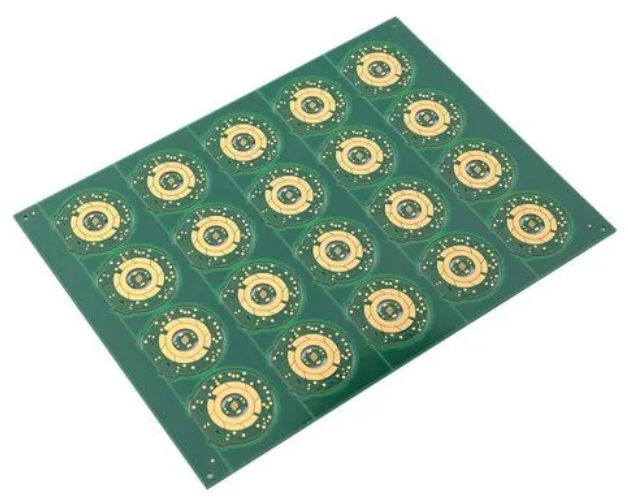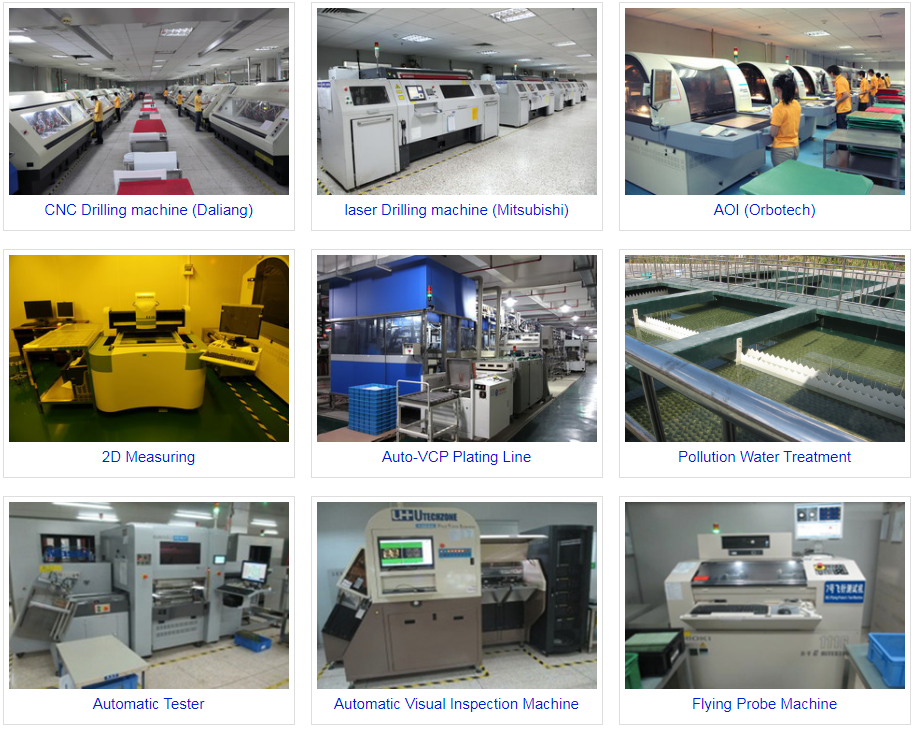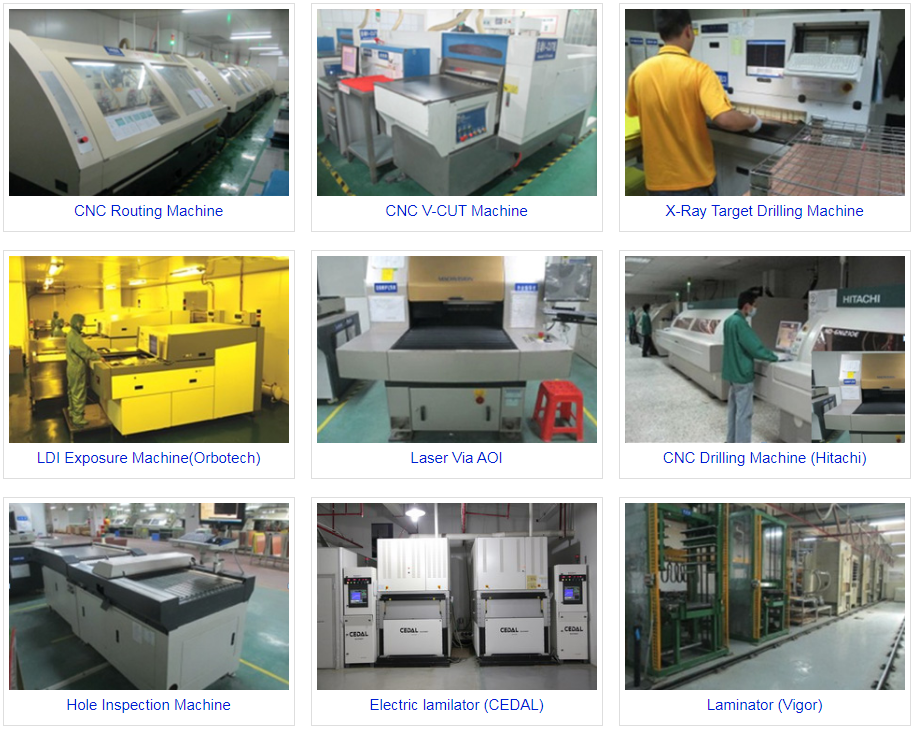What is a hard gold PCB?
A “Hard Gold PCB” refers to a type of printed circuit board (PCB) that has gold plating on its surface. Gold plating is used in PCB manufacturing for various reasons, including its excellent conductivity, corrosion resistance, and aesthetic appeal. Here’s some information about hard gold PCBs:

- Gold Plating Types:
- Hard Gold: Hard gold plating is thicker and more durable than other types of gold plating, such as soft gold or gold flash. It is typically used in areas of the PCB that require repeated connections or have components soldered to them.
- Soft Gold: Soft gold plating is thinner and less durable compared to hard gold. It is often used in applications where the PCB will not undergo frequent or harsh contact with connectors.
- Applications:
- Hard gold PCBs are commonly used in applications where reliability and longevity are crucial. This includes industries like aerospace, medical devices, military equipment, and telecommunications.
- They are used in connector areas, edge connectors, and other critical contact points on the PCB to ensure stable electrical connections over time.
- Advantages:
- Excellent electrical conductivity: Gold is an excellent conductor of electricity, ensuring reliable signal transmission.
- Corrosion resistance: Gold does not corrode or tarnish, even in harsh environments, which makes it ideal for long-term use.
- Solderability: Gold is compatible with soldering processes, ensuring components can be easily attached to the PCB.
- Aesthetics: Gold-plated PCBs often have an appealing and professional appearance.
- Cost Considerations:
- Hard gold plating is more expensive than other plating options, such as tin or silver, which makes it suitable for applications where cost is less of a concern compared to performance and reliability.
- Thickness:
- The thickness of the gold plating can vary depending on the application and requirements, but it is typically measured in microinches (µin) or micrometers (µm).
- Maintenance:
- Hard gold plating requires little to no maintenance, making it a good choice for PCBs in applications where regular servicing is not practical.
In summary, a Hard Gold PCB is a type of printed circuit board with a thicker and more durable gold plating on its surface. It is commonly used in applications where reliable electrical connections and long-term durability are essential, such as aerospace, medical devices, and military equipment.
The difference between hard gold and soft gold in circuit boards
The difference between “hard gold” and “soft gold” in circuit boards refers to the type of gold plating used on the board’s surface. These two types of gold plating have distinct characteristics and applications:
Hard Gold:
- Plating Characteristics: Hard gold plating is relatively thick, typically ranging from 2 to 50 microinches (0.05 to 1.27 micrometers). It is often applied using an electroplating process, resulting in a durable and robust coating.
- Durability: Hard gold is highly resistant to wear and corrosion, making it suitable for applications where connectors need to be inserted and removed frequently or for use in harsh environmental conditions.
- Cost: Hard gold plating is usually more expensive than soft gold due to its thickness and durability.
Soft Gold:
- Plating Characteristics: Soft gold plating is relatively thin, typically ranging from 5 to 20 microinches (0.13 to 0.5 micrometers). It is typically applied using an electroplating process, resulting in a thinner coating.
- Applications: Soft gold is often used in areas of the circuit board where frequent connections are not required or where connector contact is not as critical. It is commonly used in applications where cost is a primary consideration.
- Cost: Soft gold plating is generally less expensive than hard gold because of its thinner coating and lower gold content.
In summary:
- Hard gold is chosen for applications where durability and reliability in electrical connections are critical, such as in connector areas or for components that need frequent insertion and removal.
- Soft gold may be preferred when the application does not require a thick gold coating, or when cost is a primary consideration.
The choice between hard gold and soft gold plating depends on the specific requirements of your application and your budget constraints.
How to choose a hard gold PCB factory?
Choosing a hard gold PCB (Printed Circuit Board) factory is an important decision as it can significantly impact the quality and reliability of your electronic products. Here are some steps and factors to consider when selecting a hard gold PCB factory:
- Define Your Requirements:
- Clearly outline your project’s requirements, including the size, complexity, quantity, and specifications of the hard gold PCBs you need. Understanding your specific needs will help you narrow down potential suppliers.
- Quality and Certification:
- Look for PCB manufacturers with industry certifications such as ISO 9001 and ISO 13485 (for medical devices). These certifications demonstrate a commitment to quality management and processes.
- Experience and Reputation:
- Research the factory’s history and reputation. How long have they been in business? Do they have a track record of producing high-quality PCBs? Customer reviews and testimonials can provide insights into their reputation.
- Technical Expertise:
- Evaluate the factory’s technical capabilities. Do they have the necessary equipment and expertise to produce hard gold PCBs to your specifications? Request information on their manufacturing processes and equipment.
- Sample PCBs:
- Ask for sample PCBs or prototypes to assess the factory’s workmanship and quality. This will allow you to verify if they can meet your standards.
- Quality Control and Testing:
- Inquire about their quality control procedures and testing protocols. Ensure they have rigorous quality checks in place to detect and rectify any defects during production.
- Cost and Quotation:
- Request quotations from multiple PCB factories to compare costs. Keep in mind that while cost is important, it should not be the sole determining factor. Balancing cost with quality and reliability is crucial.
- Lead Times and Capacity:
- Consider the factory’s production capacity and lead times. Can they meet your project’s timeline and quantity requirements? Ensure they have the capacity to handle your order effectively.
- Communication and Support:
- Assess the factory’s communication and customer support. Effective communication is essential for addressing any issues or changes during the manufacturing process.
- Environmental and Ethical Practices:
- Inquire about the factory’s environmental practices and ethical standards. Ensure they comply with relevant environmental regulations and adhere to ethical labor practices.
- Location and Logistics:
- Consider the factory’s location and proximity to your business. This can affect shipping costs, lead times, and logistics.
- References and Past Projects:
- Ask for references from the factory and inquire about their past projects. Speaking with previous customers can provide valuable insights into their performance and reliability.
- Contract and Terms:
- Review the contract terms, including payment terms, warranties, and any additional services they offer (e.g., design assistance, assembly services).
- Visit the Factory (If Possible):
- If feasible, visit the factory in person to assess their facilities and capabilities. This can provide a firsthand look at their operations and build trust.
- Feedback and Continuous Improvement:
- After selecting a factory, maintain open communication and provide feedback on the production process. This helps ensure a collaborative and successful partnership.
By carefully evaluating these factors and conducting thorough research, you can make an informed decision when choosing a hard gold PCB factory that aligns with your project’s requirements and quality standards.
Welcome to custom Hard Gold Plating PCB directly from China PCB Manufacturer at low cost.
Main Equipments



